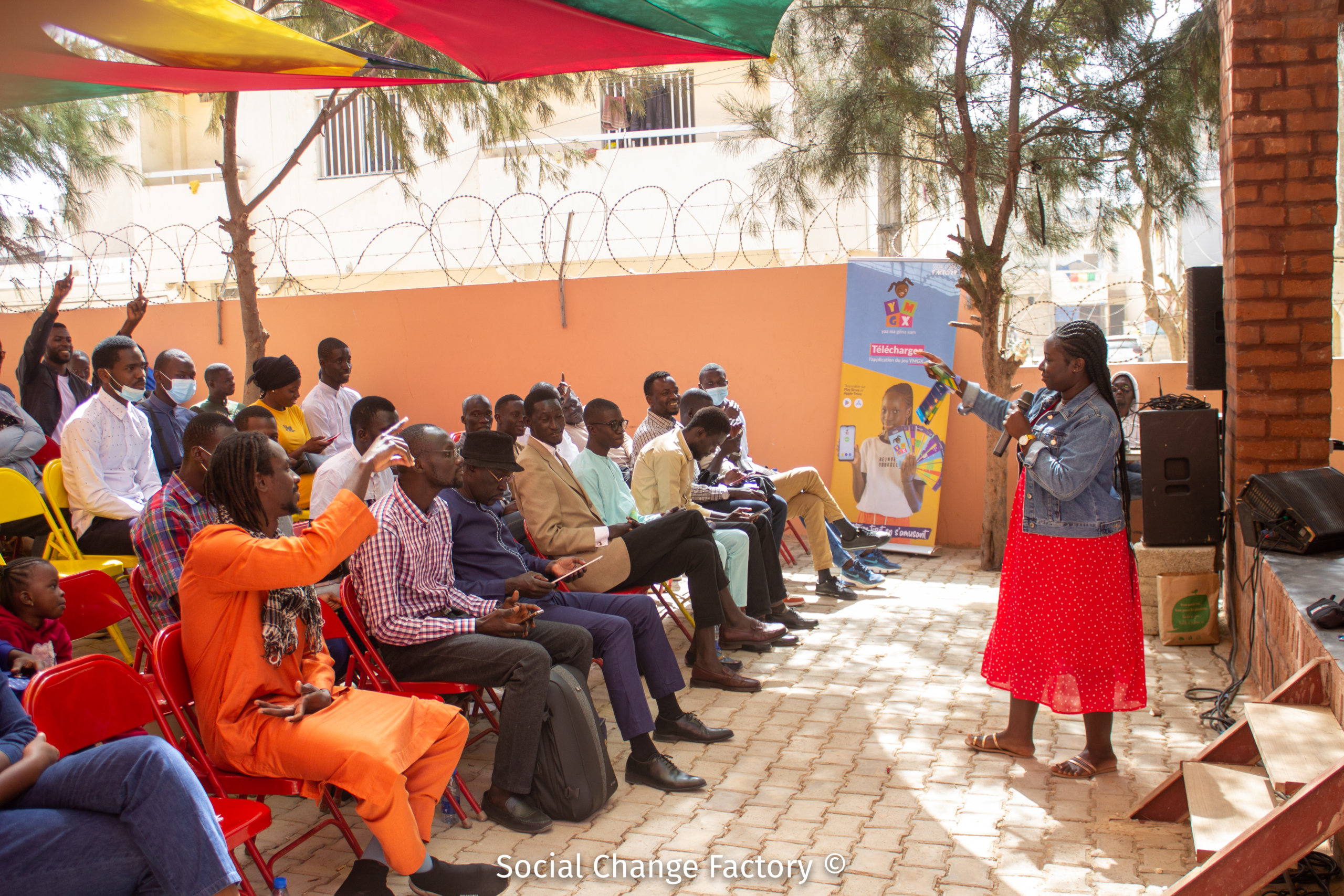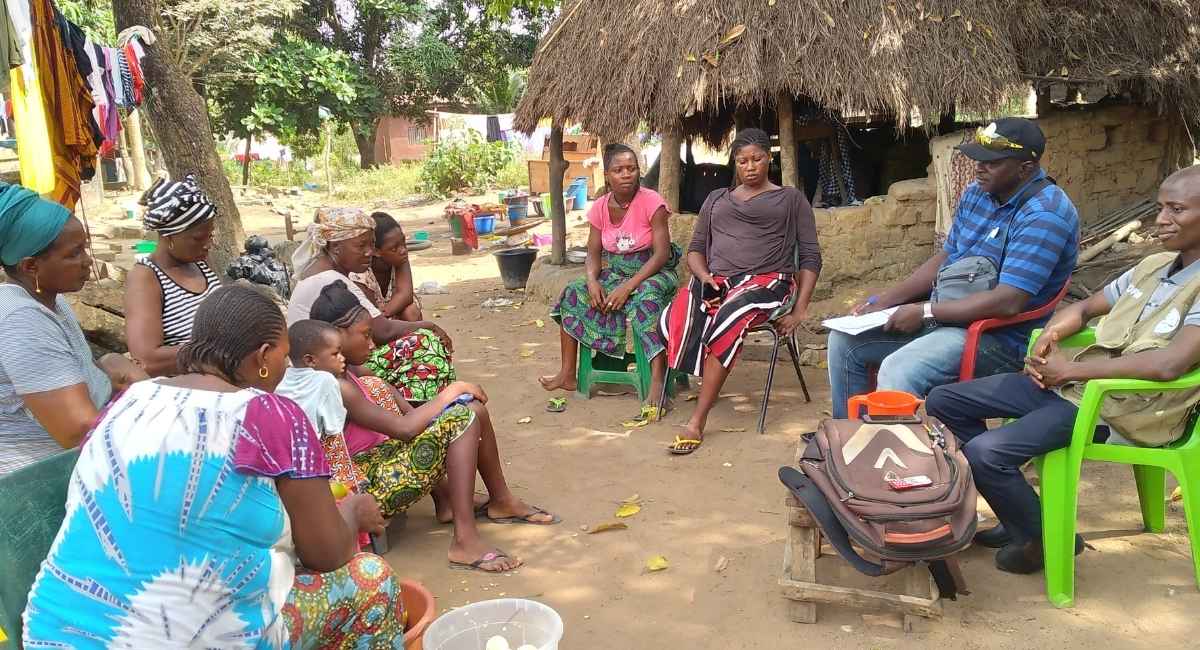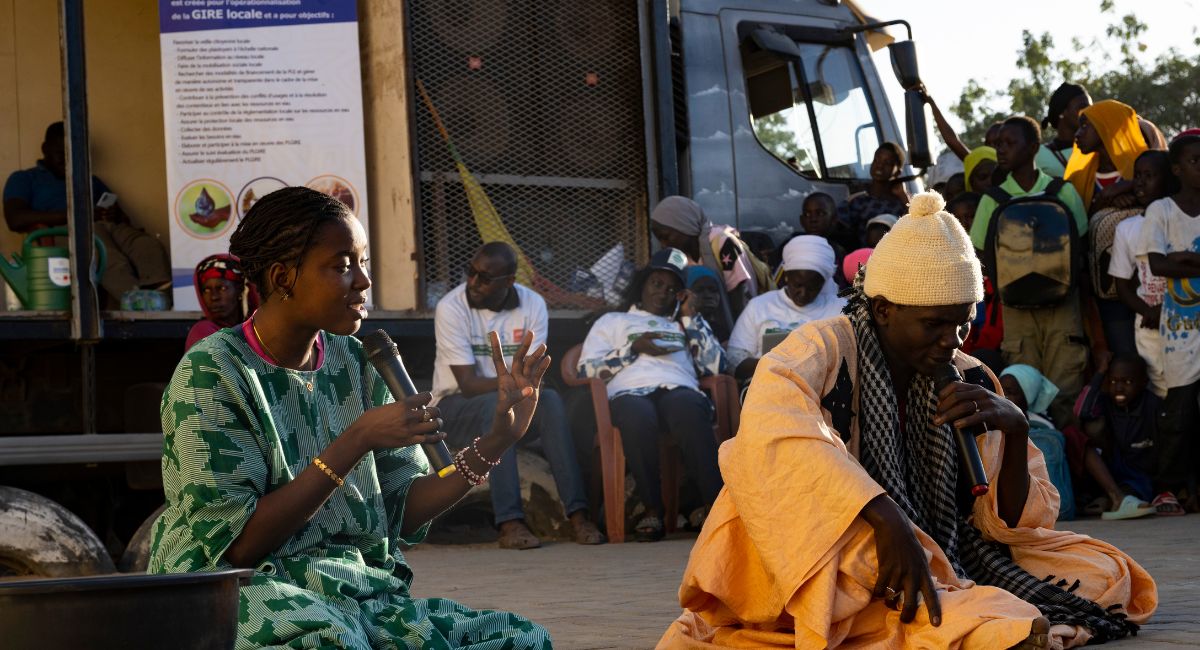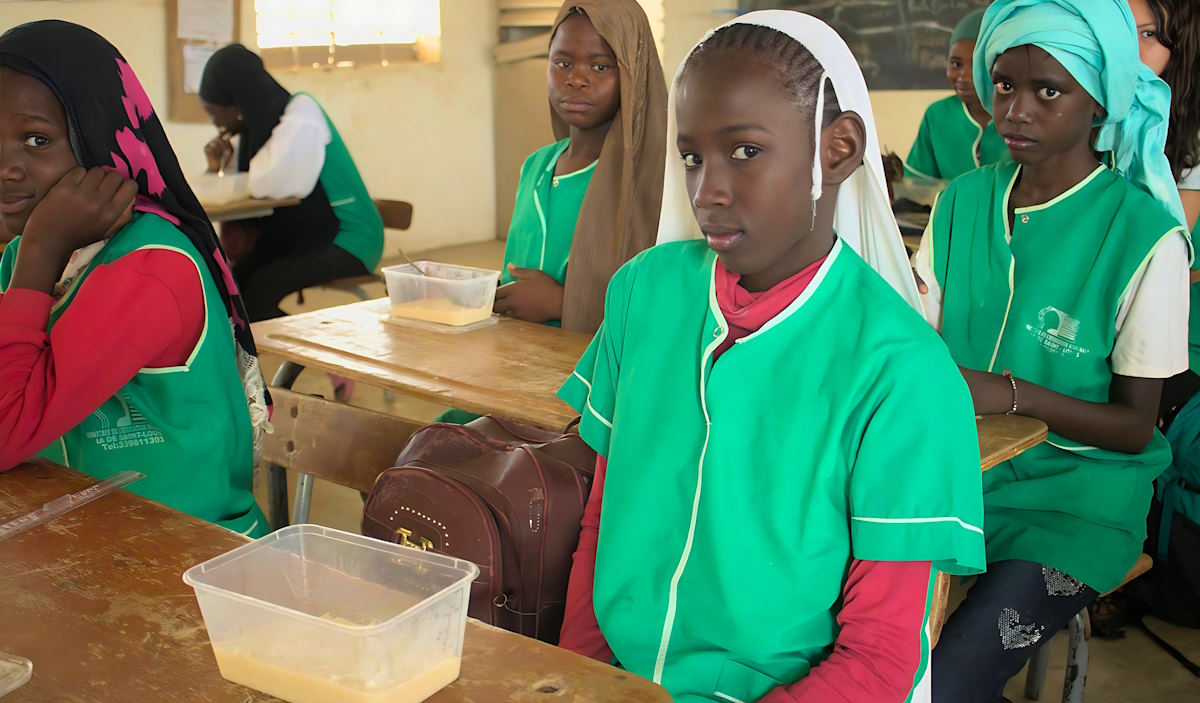Interview with Sobel Aziz Ngom, co-founder and executive director of Consortium Jeunesse Sénégal (CJS)1, an alliance of 25 organisations directed by young social innovators, entrepreneurs, investors and researchers committed to promoting inclusion and empowerment of young people in Senegal.
There are many definitions of youth, based on varying criteria. In light of the Senegalese context, what is your definition?
Being young in Senegal is more about social and economic condition rather than an issue of age. The thing young people have in common is “pre-autonomy”. Autonomy – which in this case should be understood as the capacity to generate an income and cover a family’s needs – gives them adult status in the eyes of their family and of society. Some young people manage to play this role quite early, while others acquire it much later. We see 25-year-old adults who just got their first job and are able to leave the family home, just as we see 42-year-old young people who, due to a lack of resources, still live with their parents. But generally speaking, we live in a system where the age at which people become autonomous is rising… young people are getting older and older.
Society also associates certain practices and aspirations with young people. Young people are perceived as being creative, dynamic, enterprising, committed. Young people are often defined by their desire for freedom, their enthusiasm, their creativity. For example, when we talk about creative and cultural industries, we mainly talk about young people, even if actors are not always young in terms of age.
What is your view of the situation of young people in Senegal today?
I am both worried and optimistic. Worried because the demographic is changing, and educational needs are changing with it. But currently our educational supply only meets 50% of demand. Despite efforts underway, the number of young people not attending school or not often attending school is high, and it will continue to rise in the coming years. What capacity will we have to massively educate children who, as we see today, have a lot less family and community attention? I feel that current preoccupations are mainly about the jobs of young people already in employment, and insufficient attention is given to alternatives enabling upcoming young people to be prepared to integrate the world of work more easily.
However, I also believe that these young people are resilient. They have values, beliefs, traditions. Today, young people are experiencing such levels of poverty that choosing violence or extremism could seem easier to them. Yet, I have the feeling that our young people want to protect something that is larger than them. We are still a society of peace and dialogue, which is not maintained solely by older people: young people fully contribute to this. And this is a strength, even if, with the decrease in education, it could become more fragile.
The Senegal Youth Consortium set itself the objective of informing, involving and equipping one million young people for employment and entrepreneurship by 2030. What are the challenges ahead?
To my mind, there are three types of challenges. The first is to align our vision and our mission with policies in favour of young people. This also requires convincing people that it is necessary to change those that are not favourable to them, and to roll out certain reforms.
Today, the consortium is made up of a vast network of 25 member organisations with a common programme for education, inclusion and work. The second challenge is to continue expanding this network to enable other organisations not just to join this common programme but also to strengthen their capacities to support the quality of their interventions. Together we are stronger. This is a real success factor.
Naturally, the third challenge is around financial resources. Our governments do not provide a lot of resources for this type of initiative. We can count on the support of development partners in Senegal that have a vision for the integration of civil societies in development, and want to involve young people through the demographic reality and the potential they represent. There is a lot of reflection underway on the manner in which young people should be involved and the creation of new types of partnerships, with new organisations that they consider to be innovative.
We are in a crucial period where public authorities, civil society and young people want the same thing, and are managing to work together to try and change things. It’s not easy, of course, but we have proved that it is possible.
In partnership with GRET, you are conducting a project entitled “Young people and citizen participation”. What are the project’s objectives and how is it being implemented?
This is a five-year project, funded by Agence française du développement. GRET worked upstream in the project, conducting a feasibility study, and is continuing to collaborate with the Consortium on certain operational aspects. The objective is to enable young people to change their lives and become independent.
We are working on three components. Firstly, to enable young people to have access to virtual and physical places. In Senegal, there are Popular education and sports centres especially for young people in 46 of the country’s geographic departments. We asked the Ministry of Youth, Employment and Entrepreneurship to make some of these buildings available to us. We are renovating and re-equipping them to make them dynamic places where all types of young people can meet. They go there to participate in theatre or digital activities, or to record podcasts. Some of them are students and come to these centres to revise. There are also orchestras, choirs… The message we want to convey is: “come as you are and become who you want to be”.
Secondly, we strengthen young activists and their groups. We support them to consolidate their structures or their actions and to give them the tools and logistical and financial resources necessary to bring their ideas to fruition. We make sure that they can share a common vision with a common end objective, so that they can participate in national construction. For example, if an environmental protection association has an idea for a project, we look at which of all the projects proposed are similar. And we provide a real programme, rather than leaving them to act alone. The Consortium works as an alliance, it pools efforts and resources.
The third component is advocacy with the authorities. There is significant work on reforms and on the creation of a dynamic, a civic dialogue in communities: debates, strengthening of young people’s voices in the media, etc. Among these reforms we are driving, there is the delegation of the youth pubic service. We are working with the Ministry of Youth on the construction of a mechanism that will enable it to entrust responsibilities for facilitation, programme management, and volunteering to young people’s organisations such as ours. We are also working on revision of tools and methods for popular education, which for a long time played an important role in Senegal. I am a realist: not everyone will be able to receive traditional education in schools, we need alternatives. Popular education makes it possible to ensure that everyone has the possibility to learn during their life.
- Senegal Youth Consortium ↩︎





